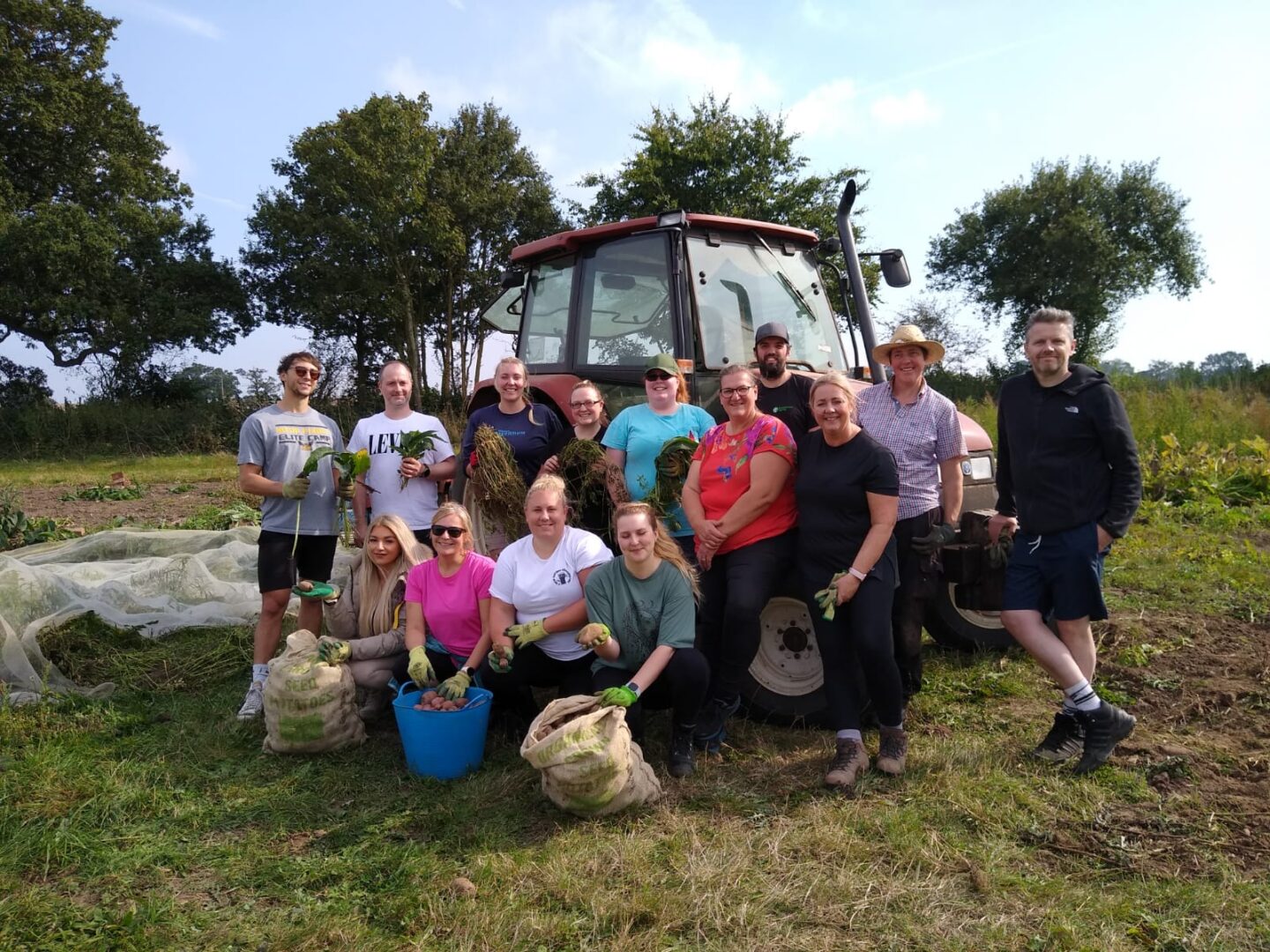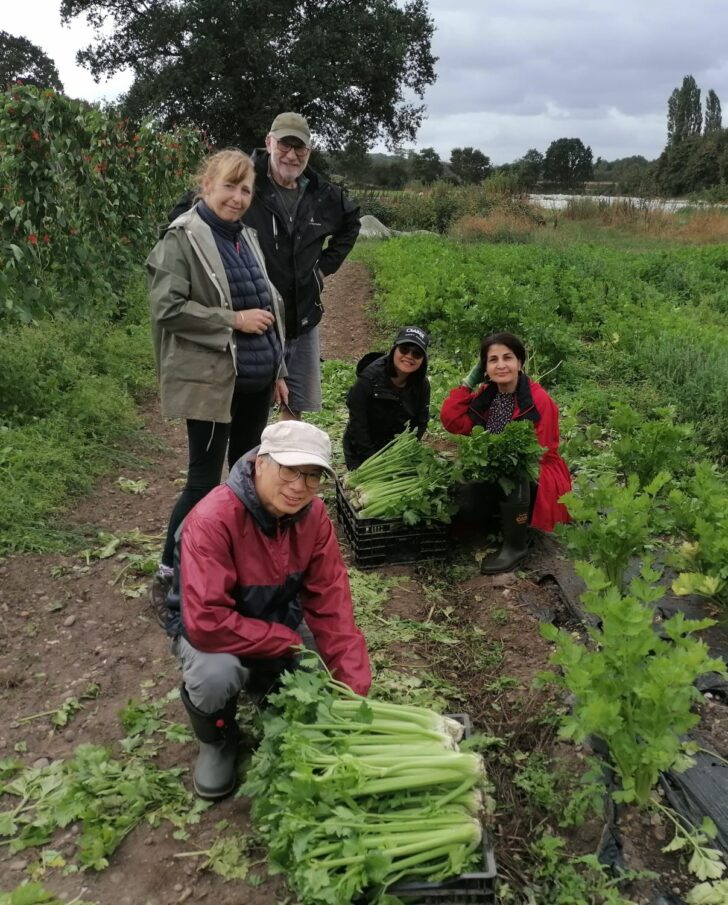5 Acre Community Farm, Ryton near Coventry

5 Acre is an organic community-supported farm (CSA), where farm members commit to buying regular produce shares, therefore giving growers a fair and reliable income.
An initiative by Transition Town Coventry gave birth to the farm in 2011 on a redundant research field owned by Garden Organic in the city’s Green Belt. Despite its name, the plot actually covers 8.5 acres! In June 2012, the first veg box was distributed. Now, around 90 families get a veg box weekly; the farm also supplies a zero-waste shop in Coventry market.
Community impact
Rebecca Stevenson came here in 2013, fresh from agricultural college and an apprenticeship at Abbey Home Farm, where she learned farm work hands-on over two seasons of differing conditions. As Becca says, to run a small-scale agroecological holding: ‘the only way to really do it is not on a course, but by doing it and seeing it and experiencing it.’ She now manages the farm, its finances and plans the growing rotation, helped by Ed Macdonald, formerly a freelance researcher with experience at the Soil Association and Rothamsted Agricultural Research Institute.
Crops are grown in polytunnels, outside beds and orchards, with fields on a five-year cycle to limit pests and diseases. Soils rest for a year and are given around 30 tonnes of organic compost and green manures to boost fertility. Weeds are managed with mulches, while biological controls tackle whitefly and red spider mite in the polytunnels. Ed is experimenting with disturbing soils less when tilling and is doing in-field tests to monitor and evaluate what works best, as part of a Land Workers Alliance project funded by UKRI and Experts in Your Field. This recognises the innovation of small farms; it supports trials and knowledge-sharing to improve biodiversity, sustainability, and resilience.
The farm produces a rich array of crops from familiar potatoes, onions, carrots and leeks to more unusual rainbow chard, chicory and asparagus. They also grow rhubarb, soft fruits, and orchard fruits. Members can help themselves to fruit when they pick up their veg box. Polytunnels and use of multiple crop varieties extend the growing season; over 20 types of salad leaves feature in the winter mix alone. Crops and planting timings are designed to make sure the veg box is supplied all year round.
The site also has areas managed to benefit wildlife and gain from it too. A rejuvenated hedgerow, laid by Warwickshire Wildlife Trust volunteers and CSA members, is filled with native trees like crab apple, blackthorn, and hazel. Field margins host wildflowers such as vetch, yellow trefoil and native grasses. These areas support bees kept on-site by a local beekeeper which help crop pollination and their honey is sold to members where they collect their veg. Ed calls their approach ‘editing the assemblage’ of different cultivated and wild species, using ‘planned and associated biodiversity’ to limit aggressive plants while encouraging those that support crops and provide habitats for wildlife.
Although land on the urban edge is more expensive, there is a ready route to a market close by. Members live or work locally, so most pick up from the farm and get regular contact with the farm and growers, staying connected to where their food comes from. Being next to a large community brings volunteers too, including refugees who come via Warwickshire County Council. It gives them purpose, exercise and a break from their hostels, and many already have farming skills.

Sustainable systems despite financial challenges
The CSA pays growers above minimum wage, but finances are managed so that veg boxes are affordable. Membership income generally supports the farm, but limited surplus and a five-year Farm Business Tenancy restrict the farm investing in equipment like rainwater harvesting.
Small market gardens, like 5 Acre CSA, remain unfunded and self-reliant. Until recently, they weren’t eligible for any new environmental funding from the government either. Becca sees dignity in not relying on the government, but adds:
Current government policy isn’t well-designed to support small organic market gardens, even though they pioneer the nature-friendly methods others are funded to use.
Happily, the government is now alert to shifting the food system away from unhealthy, environmentally harmful foods in its planned Food Strategy. They could focus more on producers like 5 Acre: a sustainable, community-based farm — supplying local people with fresh, seasonal and chemical-free produce — without depending on fossil fuels for heating greenhouses or refrigeration. It’s a business model that, far from damaging the environment, is positive for nature and biodiversity but also provides the young growers with a fair, stable income and rewarding work.
CSAs like 5 Acre offer an alternative to the vast, anonymous food chain shaped by corporate interests — providing healthy, sustainably grown food from farms on our doorstep that we can connect with.



